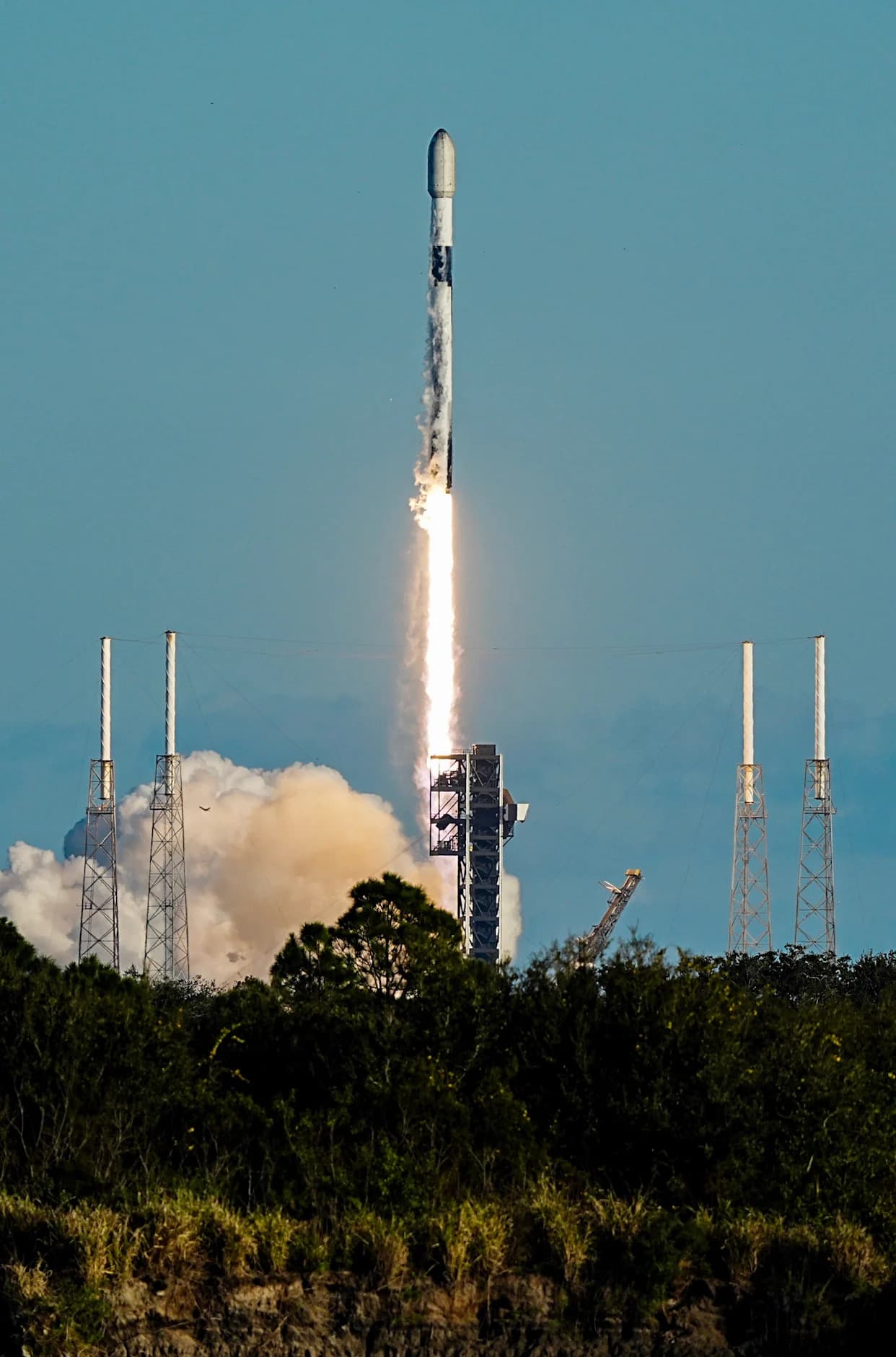Weekly Space Coast roundup: A strong solar storm produced auroras visible down to Florida’s Space Coast and led to the postponement of Blue Origin’s Nov. 12 New Glenn attempt. Blue Origin launched New Glenn successfully on Nov. 13, deploying NASA’s twin ESCAPADE satellites and landing its 188-foot booster on the drone ship Jacklyn about 375 miles offshore. SpaceX flew two Falcon 9 Starlink missions on Nov. 14–15 (Florida’s 97th and 98th orbital launches this year), leaving the Space Coast on track to reach 100 launches before Thanksgiving. Other highlights: ViaSat-3 F2, public interest in interstellar object 3I/ATLAS, and progress toward a Starship flight from Cape Canaveral.
321 Launch: Space Coast Weekly Roundup — Auroras, New Glenn Success and Back-to-Back Launches (Nov. 17)

321 Launch: This week’s key Space Coast developments (Nov. 17)
Can the northern lights be seen as far south as Florida? Yes. A powerful solar storm produced a rare overnight aurora visible down to Florida’s Space Coast, and the same space weather briefly disrupted launch plans in mid-November.
Solar storm delays New Glenn, then mission succeeds
The heightened solar activity that lit the sky also prompted a postponement of Blue Origin’s planned New Glenn launch at Cape Canaveral. Blue Origin said on X that while "New Glenn is ready to launch," NASA postponed the Nov. 12 attempt because the unusual solar activity could affect the ESCAPADE spacecraft.
Blue Origin recovered quickly: on Thursday, Nov. 13, New Glenn completed a successful second flight, deploying NASA’s twin ESCAPADE spacecraft into low-Earth orbit. The rocket's 188-foot first-stage booster, nicknamed Never Tell Me the Odds, returned to sea and landed on Blue Origin’s drone ship Jacklyn about 375 miles offshore.
Busy nights at the Cape: ViaSat-3 F2 and Starlink doubleheader
Also on Nov. 13, the ViaSat-3 F2 satellite launched from Launch Complex 41 at Cape Canaveral Space Force Station at 10:04 p.m., contributing to a very active week of missions.
SpaceX staged a back-to-back doubleheader across Nov. 14–15, launching two Falcon 9 rockets carrying Starlink payloads (designated Starlink 6-89 and Starlink 6-85) within roughly a 3½-hour window. Those flights were logged as Florida’s 97th and 98th orbital launches of the year from the Space Coast.
Record-setting season for the Space Coast
Florida had set an orbital launch record of 93 earlier in 2024; that mark has been surpassed multiple times this season. With the recent cadence of missions, the Space Coast is on track to reach its 100th orbital launch of the year before Thanksgiving.
Local coverage on the Space Beat podcast featured host Rob Landers talking with Space Reporter Rick Neale about what a record-breaking year means for the region, including the sometimes surprising conditions that can delay a launch even on otherwise sunny days.
Other highlights
An interstellar object designated 3I/ATLAS continued to capture public attention. Objects arriving from another star system are extremely rare, which has fueled wide-ranging public speculation — including fringe theories suggesting artificial origins.
Meanwhile, SpaceX’s Starship is progressing toward a Florida debut. Kiko Dontchev, SpaceX’s VP of Launch, posted on X on Nov. 16 that preparations are advancing and that a first Starship flight from Cape Canaveral could happen as early as next year.
Stay informed
For continuing coverage and the latest local launch schedules from Cape Canaveral Space Force Station and NASA’s Kennedy Space Center, visit FloridaToday.com/space or sign up for the weekly Space newsletter.
Reporter: Rick Neale, Space Reporter at FLORIDA TODAY. Contact: Rneale@floridatoday.com. Twitter/X: @RickNeale1
Support in-depth local space coverage with a subscription to Florida Today.
Help us improve.


























